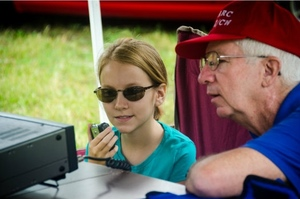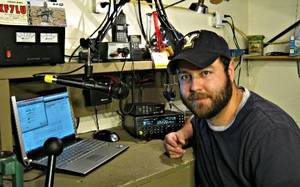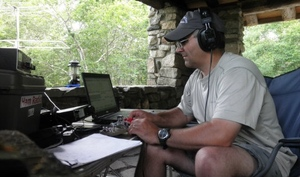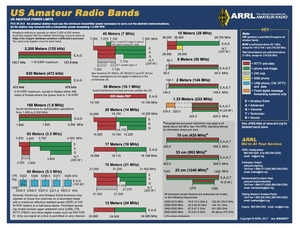Amateur Radio License Levels / Operator Class
The US Technician License

The Technician class license is the entry-level license of choice for most new ham radio operators. To earn the Technician license requires passing one exam totaling 35 questions on radio theory, regulations and operating practices. The license gives access to all Amateur Radio frequencies above 30 MHz, allowing the licensee the ability to communicate locally and most often within North America. It also allows for some limited privileges on the HF bands used for international communications.
LEVEL 1: Technician Class LicenseExam Requirement: 35-question Technician Written Exam (Element 2). No time limit and minimum passing score 26. Privileges: All VHF/UHF Amateur bands (frequencies above 30 MHz). Limited operations in certain HF bands.
The FCC Technician License exam covers basic regulations, operating practices and electronics theory, with a focus on VHF and UHF applications. Morse code is not required for this license. With a Technician Class license, you will have all ham radio privileges above 30 MHz. These privileges include the very popular 2-meter band. Many Technician licensees enjoy using small (2 meter) hand-held radios to stay in touch with other hams in their area. Technicians may operate FM voice, digital packet (computers), television, single-sideband voice and several other interesting modes. You can even make international radio contacts via satellites, using relatively simple station equipment. Technician licensees now also have additional privileges on certain HF frequencies. Technicians may also operate on the 80, 40 and 15 meter bands using CW, and on the 10 meter band using CW, voice and digital modes. Sign up for an exam.
The US General License

The General class license grants some operating privileges on all Amateur Radio bands and all operating modes. This license opens the door to world-wide communications. Earning the General class license requires passing a 35-question exam. General class licensees must also have passed the Technician written exam.
LEVEL 2: General Class LicenseExam Requirement: 35-question General written exam (Element 3). No time limit and minimum passing score 26. License Privileges: All VHF/UHF Amateur bands and most HF privileges (10 through 160 meters).
The General Class license is the second of three US Amateur Radio licenses. To upgrade to General Class, you must already hold a Technician Class license (or have recently passed the Technician license exam). Upgrading to a General license - which conveys extensive HF privileges - only requires passing a written examination. No Morse code test is required. Once you do, the entire range of operating modes and the majority of the amateur spectrum below 30 MHz become available to you. Non-licensed individuals must pass Element 2 and Element 3 written exams to earn a General License. The FCC grants exam Element 3 credit to individuals that previously held certain older types of licenses. Sign up for an exam.
The US Amateur Extra License

The Amateur Extra class license conveys all available US Amateur Radio operating privileges on all bands and all modes. Earning the license is more difficult; it requires passing a thorough 50 question exam. Extra class licensees must also have passed all previous license class written exams.
LEVEL 3: Extra Class LicenseExam Requirement: 50-question Extra written exam (Element 4). No time limit and minimum passing score 37. License Privileges: All Amateur band privileges.
General or Advanced licensees may upgrade to Extra Class by passing a 50-question multiple-choice examination. No Morse code test is required. In addition to some of the more obscure regulations, the test covers specialized operating practices, advanced electronics theory and radio equipment design. Non-licensed individuals must pass Element 2, Element 3 and Element 4 written exams to earn an Extra License. The FCC grants exam element 3 credit to individuals that previously held certain older types of licenses. Sign up for an exam.
'Grandfathered' US Operator Classes
Novice, Technician Plus, and Advanced Class amateur service operator licenses are no longer issued by the FCC. The old Novice and Advanced licenses, however, remain valid and may be modified or renewed. Over time, Technician Plus Class operator licenses were converted to the current Technician Class license when renewed or modified.
